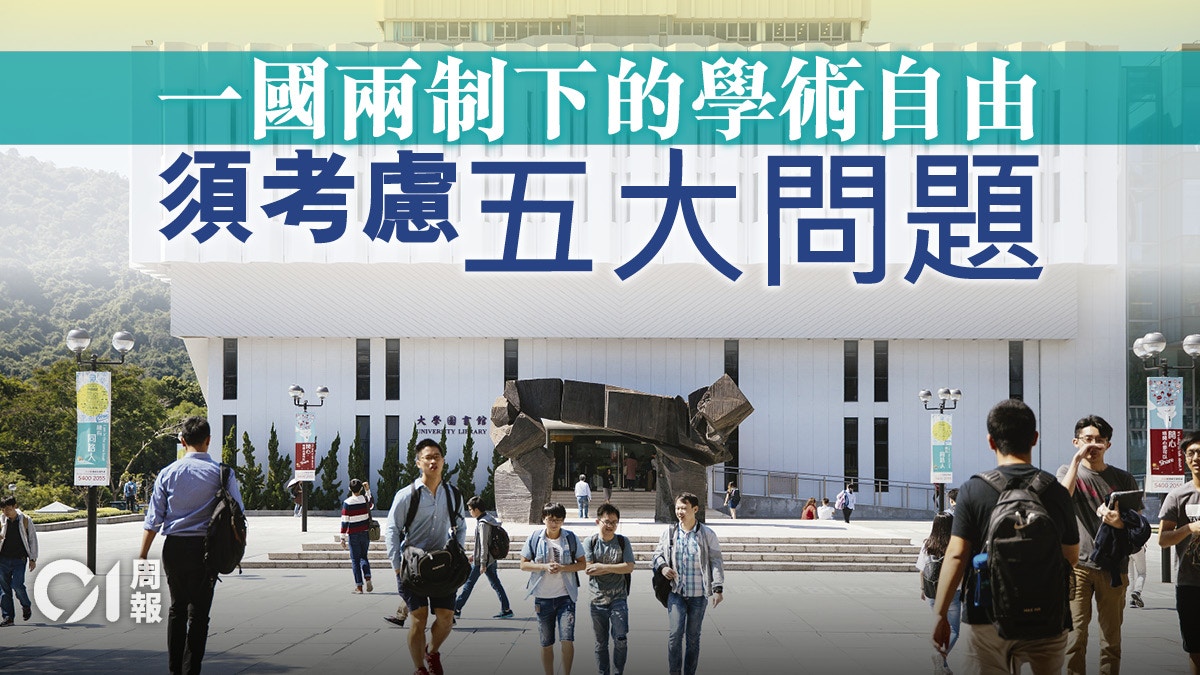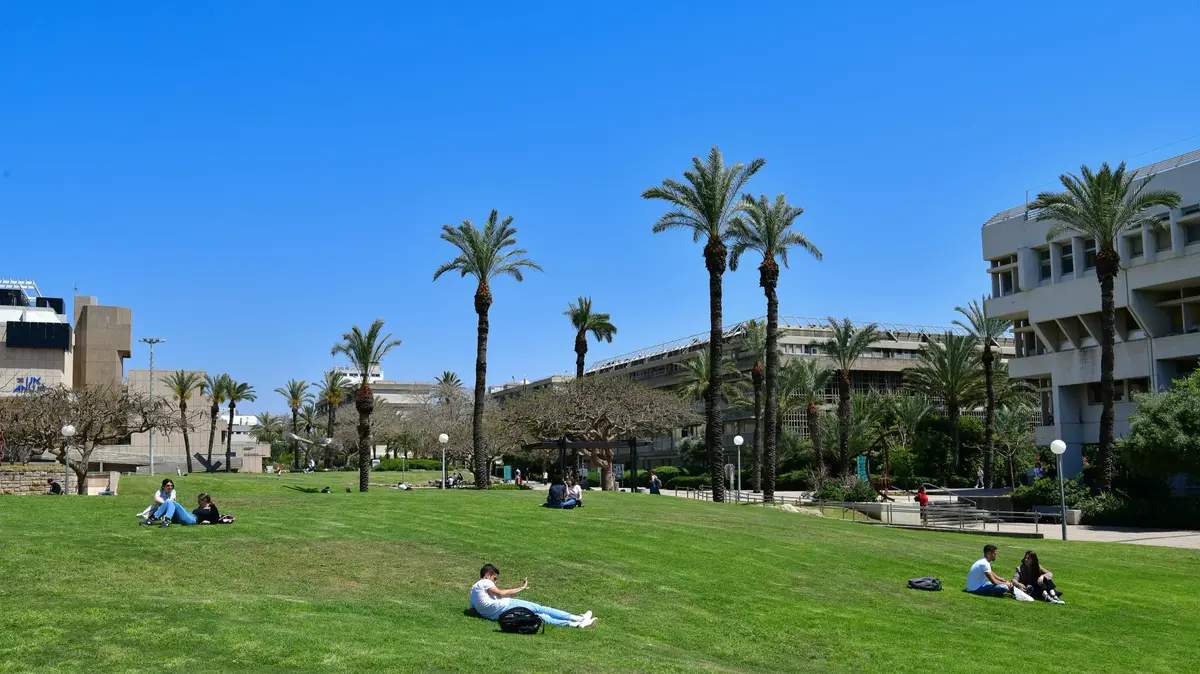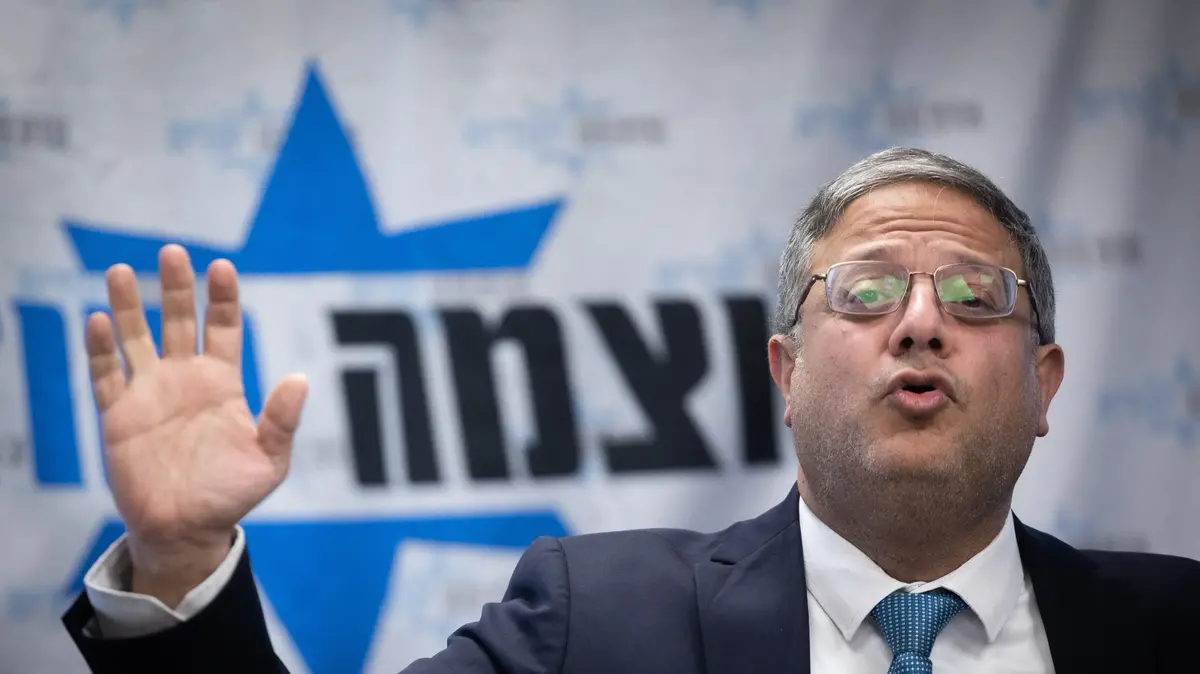weekly
Author: Contributing Writer
2020-06-23 15:04
Date of last update: 2020-06-23 15:04At the beginning of June, some university presidents of Hong Kong expressed their agreement with the importance of the "National Security Law of the Minato District" to national security and stability of Hong Kong, but they also hoped to guarantee the independence and academic freedom of universities and colleges granted by the Basic Law. There is tension between national security and academic freedom. It is not surprising that the recent threats of the United States to restrict or even expel Chinese students are a clear example, indicating that universities are also national security risks. Society has a responsibility to prevent universities from becoming a hotbed of division, subversion, and terrorist activities. As long as it is done properly, it can not only maintain national security, but also guarantee the independence and academic freedom of colleges and universities.
Written by: Huang Bernong
This article uses the national security terrain of American universities as an example to explore how universities in Hong Kong think about safeguarding the autonomy and academic freedom of universities under the principle of maintaining national security.
What kind of relationship should be developed between the security intelligence agency and the university to guarantee academic freedom is a question that Hong Kong society must consider next.
In the anti-revision laws last year, universities in Hong Kong became the focus of conflict. Radical demonstrators once occupied the Chinese University and the Polytechnic University. They used gasoline bombs and other weapons to fight the police. The blazing scenes made people on and off the campus panic. In recent years, the political polarization has made more and more teachers and students feel unable to express their true ideas. Under the grim situation, the government hopes that the "Minato City National Security Law" will stabilize the overall situation, but everyone also needs to discuss what is meant by "academic freedom" within the framework of national security.
I believe that academic freedom in line with national security is a value and system that must be maintained by the Central National Security Agency in Hong Kong, the security agency of the Hong Kong Special Administrative Region Government, the higher education community of Hong Kong, and the Hong Kong community to ensure that university personnel and students Research and study in an environment of political stability, security, inclusiveness, and norms based on seeking truth. Academic freedom needs to be maintained by national security, so that teaching and research personnel and students can safely play their due functions and roles. In fact, this concept of academic freedom based on national security has been operating in the United States for many years. I will first outline the mechanism by which US intelligence agencies brake the university, and then discuss the relationship between the US intelligence department and the university in the case of the dismissal of Peng Dajin, the president of the Confucius Institute at the University of South Florida (USF) in 2011. To analyze how the US intelligence agencies penetrated universities, intervened in personnel conflicts on campus, and "national security" might become a tool of competition among professors, as a negative reference.
The police broke into the CUHK campus and fired tear gas at the campus. (Profile picture/Getty Images)
American intelligence agencies brake universities in four ways
There are at least four aspects to the mechanism by which US intelligence agencies brake universities. First of all, in recent years, American universities have regularly provided degree courses on homeland security, espionage, and cyber security, so that colleges and universities are competing to seek "Intelligence Community Centers for Academic Excellence" and "National Network Operations Program Center of Excellence." ”(National Centers of Academic Excellence in Cyber Operations). Because these centers are under the jurisdiction of national security agencies, accredited universities can apply for research funding from the federal government. The Intelligence Advanced Research Projects Activity, established by the federal government in 2006, specifically funded research projects known as "high-risk/high pay-off". Universities rely on the funding of national security agencies to participate in confidential research programs, and the direction of teaching and research will inevitably be affected.
Second, at present, US intelligence agencies regularly meet informally with senior university officials and provide seminars to faculty and students to explain various spy threats. Experts and scholars in universities are also invited to serve as national security advisers to the government. This phenomenon can be traced back to the Office of Strategic Services (OSS), a foreign intelligence agency established in 1942. OSS first attracted 13 Yale University professors to join, and then 42 Yale graduates became intelligence officials. Among them, some professors once covered the OSS as the intelligence director of Istanbul in Turkey. In 1947, the Central Intelligence Agency (CIA) was established and absorbed OSS. The CIA continued to use Yale University as a base and expanded to other "Ivy League" campuses, including Harvard University and MIT.
Third, the current practice of US intelligence agencies to recruit foreign students can be traced back to the establishment of the National Student Association (CIA) by the CIA in 1950. The Association collects and analyzes the political tendencies and personality characteristics of foreign students for the CIA, develops them as CIA informants and counteracts their work for the CIA after returning to China. The number of members of the association has continued to increase in the coming decades. The CIA also attracted journalists and clerics through the university campus and penetrated the media and churches at home and abroad.
Finally, in 2005, in order to effectively coordinate the cooperation between national security agencies and universities, the Federal Government established the "National Security Higher Education Advisory Board" to allow university presidents and leaders to join. In 2013, the Federal Bureau of Investigation (FBI) and the CIA issued "security clearance" to the members of the committee, allowing them to conduct confidential meetings within the two bureaus. Within the institutional framework where intelligence agencies have been able to coordinate university affairs, the security terrain of American universities has also changed. The Peng Dajin case is an example.
Yale University. (Profile picture/Reuters)
Peng Dajin was admitted as a graduate student by the Beijing Institute of International Relations in 1984. After graduating in 1986, he went to study in the United States. In 1989, he received Woodrow from Princeton University. Admission to the doctoral program of the Wilson School of Public and International Affairs. As the School of International Affairs was accused of having a close relationship with the Chinese Ministry of National Security, Peng had been watched by the FBI and CIA while studying in the United States. American intelligence agencies learn about personnel dynamics and student backgrounds on campus through intelligence networks dominated by university administrators and professors. The FBI and the CIA each proposed rich conditions to Peng, hoping that he could assist the US intelligence work in China. Peng rejected them, but did not want to offend the US government, he kept in touch with FBI agent Nicholas Abaid, who is responsible for Princeton University's counterintelligence work. In 1994, Peng won the USF chair, and Yapat asked him to report to the FBI's Florida branch immediately, but was refused.
The USF, like other universities in the United States, is under pressure from national security agencies. In 1995, Ramadan Shalah, executive director of the World and Islam Studies Enterprise, a USF think tank, became the leader of the Palestinian Islamic Jihad in Iran in support of Syria. As Sami Al-Arian, a computer engineering professor at USF, co-founded the "World and Islamic Studies Institute" with Sana, the media immediately accused him of supporting terrorism. The FBI conducted a several-year investigation with Arian, including searching documents at home and eavesdropping on communications. In order to balance national security and academic freedom, USF principal Betty Castor gave Arian paid holidays for him to cooperate with the FBI to investigate. In 1998, an investigation commissioned by the university proved that Arian made no mistakes and decided to restore the teaching post.
After the "911" terrorist attack in 2001, some media accused Ariane of supporting terrorism. The University Council instructed the then principal, Judy Genshaft, to investigate the incident. Arian believes that the FBI is behind the investigation. In 2003, Arian was charged with conspiracy to commit murder. He was sentenced to 57 months in 2006 after pleading guilty. In 2015, he was deported to Turkey. To save the reputation of the university, the USF officially received research funding from the Ministry of Defense, the National Security Agency, and the State Council. It also conducted courses to train intelligence personnel and cyber security personnel.
The Pentagon caught fire during the 9/11 terrorist attack. (Profile picture)
Confucius Institute at Florida
Against this background, Peng Dajin was naturalized as a US citizen in 2000. In 2005, in addition to the USF's official position, Peng began to teach part-time at Chinese universities. In 2007, Maria Crummett, the dean of the USF School of International Affairs, promoted Peng to use his contacts in China to establish a Confucius Institute at the USF. Peng quickly obtained approval and funding from the Office of the Chinese National Leading Group for the Promotion of Chinese ("Hanban") and Nankai University, and Gan Mi immediately recognized his work. From 2004 to 2005, Hanban established more than 500 Confucius Institutes worldwide, of which 109 were in the United States. Some scholars criticized the Confucius Institute for not allowing teachers to discuss sensitive topics, such as the Tibet issue. Intelligence agencies suspected that the Confucius Institute was used as a spy. The FBI began an investigation against the Confucius Institute.
U.S. investigative reporter Daniel Golden disclosed in detail in the book "Spy Schools: How the CIA, FBI, and Foreign Intelligence Secretly Exploit America's Universities" published in 2017. The book points out that even if there is no substantial evidence, the FBI staff will abruptly call the private mobile phones of the Confucius Institute staff directly to request information. Peng Dajin ignored these dark surges. He added a cultural center in the Confucius Institute and received donations from local overseas Chinese to expand Chinese language courses and fund a series of cultural activities. But the FBI has secretly reviewed him.
In 2009, a scholar named Zhang from Nankai University visited the USF Confucius Institute. At that time, she was considering divorcing her husband in China. She developed a romantic relationship with Peng Dajin, but Peng finally alienated her. Zhang Huai hated this, and first complained to Dean Gan Mi about Peng’s poor management and inappropriate remarks about the opposite sex, which was not accepted by the school. At the same time, Peng fired a Confucius Institute surnamed Li, the director of the China Project Coordinator, which also made Li Huai hate, and Peng believes that Li is an FBI spy.
Eric Shepherd, a USF professor of Chinese language, also received financial support from Hanban. All the people in the school knew that he had a competitive relationship with Peng Dajin, and the two of them brought charges against Peng. Shi Ba also intends to take over the Confucius Institute. He first hired Li as a teaching assistant, and then accompanied the two to complain to Peng Dajin about sexual harassment, etc. In April 2009, Peng was asked by the university to take a holiday for investigation. In August of the same year, Shi Ba took over the Confucius Institute. The investigation did not prove Peng She’s espionage activities, but found problems such as embezzlement of public funds.
Peng believes that the FBI is behind the whole thing. In addition to contacting the parties involved and senior school officials during the process, the FBI also called the University Audit Office and sent agents to lunch with Peng on several occasions. It also suggested that if Peng was willing, the FBI could intervene in the incident. In 2011, the USF decided to remove Peng’s position from the Confucius Institute. Although Peng still retains the teaching post, he was suspended until 2015 to return to the teaching post.
The Confucius Institute is affiliated to the "National Hanban" under the Chinese Ministry of Education. (Profile picture/Visual China)
National Security Terrain of American University
The above USF events provide the following reference points:
1. American security intelligence agencies penetrate the university campus to monitor and review personnel activities on campus. On the one hand, they use university talents and resources to serve national security and invest in universities to conduct research projects and teaching activities on national security; on the other hand, they carry out counterintelligence work on campus to combat terrorism and espionage. Rebel people to serve the US.
2. Not only do US national security agencies have great investigative and eavesdropping powers, spy networks also penetrate deep into university administrative systems and teaching and research organizations. Although individuals can refuse to cooperate, if they suspect that the client is involved in hidden illegal activities, even if there is no substantial evidence, they will continue to investigate and follow up. In the United States, academic freedom can only be negotiated under the tension and atmosphere of vigilant surveillance by the national security machine.
3. The US National Security Agency also exerts pressure on universities through the media to influence school administration. Because they have the right to obtain information directly from individuals and departments, they then master the dynamics in the school and can secretly intervene and shape the dynamics and developments of personnel in the school. This great power reminds school personnel and students one thing: when the bottom line of national security is touched, the academic freedom of the parties will be suspended and sanctioned.
4. In the national security terrain of American universities, the intelligence community is also involved in the personnel dynamics on campus. Although the faculty and staff can use "national security" grounds to attack their opponents, the national security agency with greater power still shapes the situation. It can be seen that a top-down dominant relationship has been formed between American intelligence agencies and universities.
Is the above American model suitable for Hong Kong academic freedom under "One Country, Two Systems"? (Profile picture)
Reflections on academic freedom under one country, two systems
Is the above American model suitable for Hong Kong academic freedom under "One Country, Two Systems"? I don’t think so. All sectors of Hong Kong must carefully consider the following issues:
1. What relationship should be developed between the security intelligence agency and the university to guarantee academic freedom? What kind of intelligence mechanism can save teachers and students from the fear of local terrorism?
2. When intelligence agencies investigate activities suspected of endangering national security in universities, what skills and methods are there to protect the identity of investigators and parties involved? Is there any mechanism to prevent intelligence agencies from getting involved in the personnel dynamics in universities?
3. What mechanism can effectively develop the intelligence relationship with the university and the anti-terrorism and anti-spyware network? Is there any mechanism to protect the identity and safety of insiders in the school?
4. In order to encourage universities to do relevant teaching and research to maintain national security, can they develop a "security inspection" system? Is there a level of security certification? What are the requirements, responsibilities and criminal liability? Can only Chinese nationals be certified as safe?
5. How do we maintain national security within the university in a humanized and important manner? How to promote different academic positions to serve national security more inclusively?
The above excerpt is from the 219th issue of "Hong Kong 01" weekly report (June 22, 2020) "How to maintain national security and academic freedom".
More weekly articles:【01 Weekly News Page】
"Hong Kong 01" Weekly, available at major newsstands, OK convenience stores and Vango convenience stores. You can also subscribe to the weekly report here, or click here to preview the weekly e-newsletter to read more in-depth reports.
Hong Kong version of the Basic Law of National Security Law, Basic Law 23, One Country, Two Systems, Academic Freedom 01 Weekly













